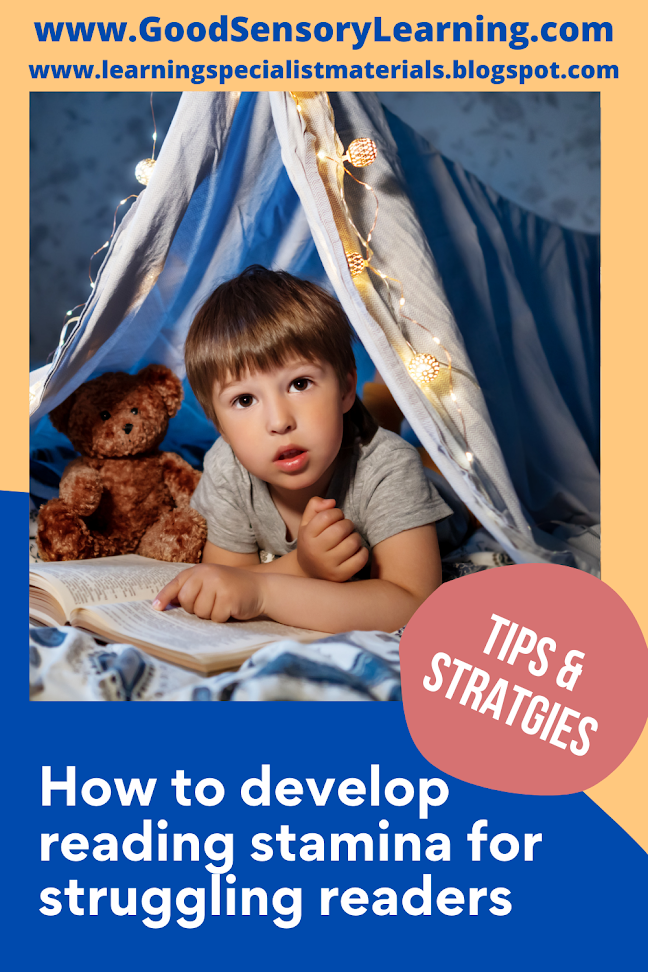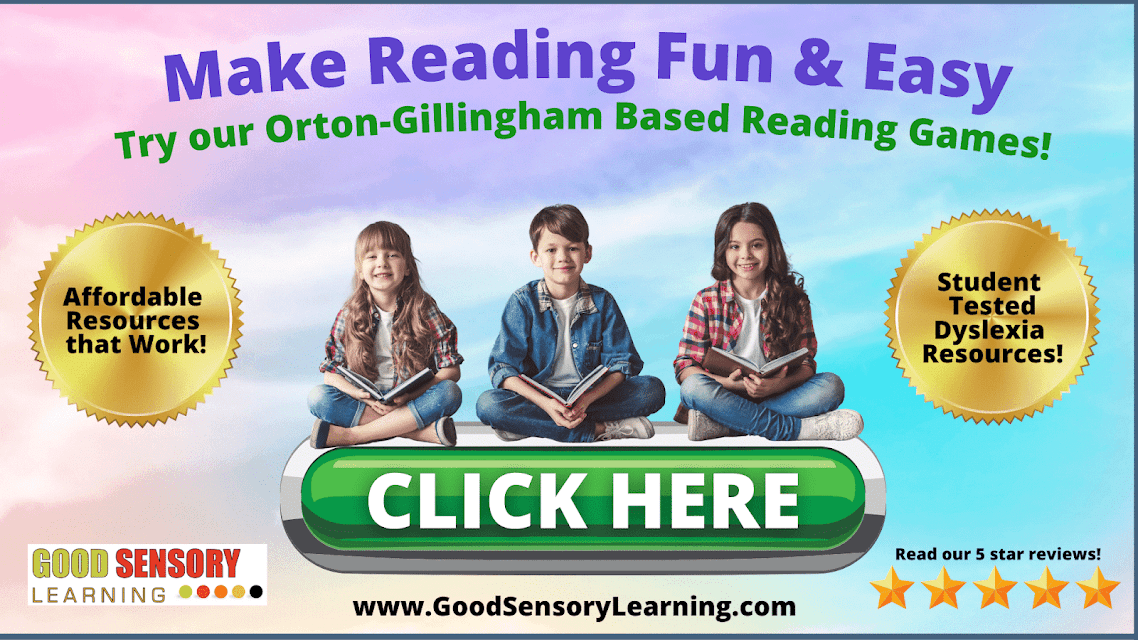This week I wanted to tell you about my online store, Good Sensory Learning. I’m Dr. Erica Warren, and I established this site so I could share all the materials that I have created over the last 20+ years as a learning specialist and educational therapist. When I first began my private practice, Learning to Learn, I had great difficulty finding fun and multisensory materials for my students that were effective and engaging. So back in 2005, I made it my mission to design and distribute high-end, remedial products as well as memorable, motivating lessons that bring delight to learning. If you would like to try a free sampling of my activities , CLICK HERE . How Are the Products Organized at Good Sensory Learning? You can download my Free Printable Catalog or you can browse the site using the grey “search all products” bar in the top right of any page with keywords such as dyslexia, working memory, and executive functioning. What’s more, drop down menus in the red banner allow you t...
Building reading stamina for struggling readers can be a tricky endeavor. After a few pages of text, many lose interest because reading is a difficult and cognitively taxing chore. So what can be done to increase endurance and help learners find joy in reading.
What is Reading Stamina?
Reading stamina is a learner's ability to sustain attention and effort when reading independently.
Why Do Some Students Struggle with Poor Reading Stamina?
Poor reading stamina is often associated with other areas of cognitive-based weaknesses. If readers, for example, are placing too much attention and energy on decoding words, there is little mental space left - if any - to comprehend the material. Perhaps they can decode words, but their tracking, visualization skills, or working memory are lacking. Again, they may not have the cognitive room to make sense of what they are reading. Here are a few possible processing areas that could get in the way:
- Weak visual processing skills
- Poor auditory processing skills
- Inadequate working memory
- Problems sustaining attention
- Trouble sitting still
- Insufficient decoding skills
- Limited to no visualization skills
- There are a number of things teachers and parents can do to build reading stamina:
- Strengthen the weak areas of cognition that make reading taxing. Cognitive games and activities can help to exercise deficit areas so that they don't take up so much mental space when reading. In other words, helping students to develop skills so they become "automatic" will make the process less taxing. Click on the following links to discover some remedial tools:
- Visual processing activities
- Auditory processing activities
- Working memory activities
- Attention activities
- Listening Activities
- Decoding games
- Visualization Activities
- Use a reading program that offers a structured, multisensory, step-by-step approach to teaching reading, writing, and spelling that incorporates the explicit and systematic teaching of phonemic awareness, syllabication, and word morphology.
- Create a special reading nook that makes the learner feel safe and secure. For example, decorate a tent or loft with pillows, stuffed animals, and fairy lights. Have fun designing and creating the space together.
- Echo read. The teacher or parent reads a sentence and then the student reads the same sentence. This helps to develop listening skills and also helps improve whole word recognition. Reading with a lot of emotion and animation can also bring the fun factor into the activity too.
- Take turns reading: When you take turns reading, it gives the child a "decoding break," and it allows them to shift their attention to listening and visualization skills.
- Turn reading into a game and slowly increase goals. Create an activity that aligns with the student's favorite things. If they love horses, create a horse race. Keep track of the number of pages that the student reads in a sitting. Each page represents a portion of the track and you can record the distance the horse travels each day. See if they can beat their record and even make it around the track! Have fun designing the track and the horses together. Perhaps the student draws a horse and the teacher or parent can replicate it many times. Each day they place a new horse on their track. They can color it and date it too.
- Encourage the use of audiobooks and either read along to develop whole word recognition or just listen and visualize. I like to use Bookshare or RazKids. If you are a specialist you can get your struggling readers a free membership as long as they are in school or college.
- Help learners find books on topics of interest. Interview them about their passions and let them pick from a variety of options.
- Reward reading effort and ignore the behaviors that you do not want to see.
- Always provide gratitude and positive feedback for small accomplishments.
Cheers, Erica
Dr. Erica Warren is the author, illustrator, and publisher of multisensory educational materials at Good Sensory Learning and Dyslexia Materials. She is also the director of Learning to Learn and Learning Specialist Courses.
· Blog: https://learningspecialistmaterials.blogspot.com/
· YouTube Channel: https://www.youtube.com/user/warrenerica1
· Podcast: https://godyslexia.com/
· Store: http://www.Goodsensorylearning.com/
· Courses: http://www.learningspecialistcourses.com/
· Newsletter Sign-up: https://app.convertkit.com/landing_pages/69400
· YouTube Channel: https://www.youtube.com/user/warrenerica1
· Podcast: https://godyslexia.com/
· Store: http://www.Goodsensorylearning.com/
· Courses: http://www.learningspecialistcourses.com/
· Newsletter Sign-up: https://app.convertkit.com/landing_pages/69400
- Get link
- X
- Other Apps
- Get link
- X
- Other Apps



Comments
Post a Comment